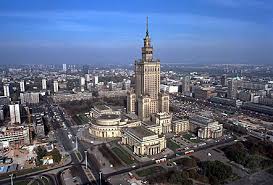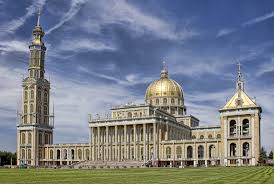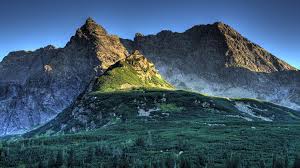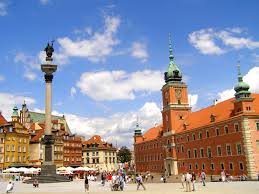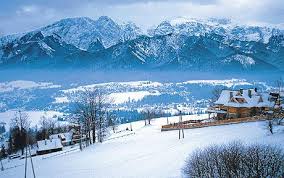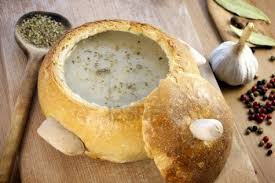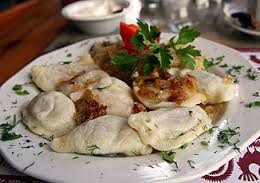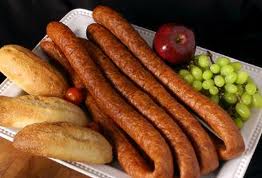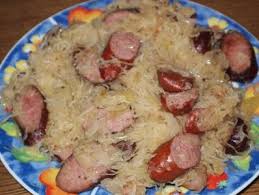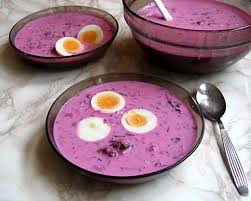Is a country in Central Europe bordered by Germany to the west; the Czech Republic and Slovakia to the south; Ukraine and Belarus to the east; and the Baltic Sea,Kaliningrad Oblast (a Russian exclave) and Lithuania to the north. The total area of Poland is 312,679 square kilometres (120,726 sq mi), making it the 71st largest country in the world and the 9th largest in Europe. With a population of over 38.5 million people, Poland is the 34th most populous country in the world, the sixth most populous member of the European Union, and the most populous post-communist member of the European Union. Poland is a unitary state divided into 16 administrative subdivisions.
Geography
Two decades later, in September 1939, World War II started with the invasions of Poland by Nazi Germany and the Soviet Union (as part of the Molotov–Ribbentrop Pact). More than six million Polish citizens died in the war. In 1944, a Soviet-backed Polish provisional government was formed which, after a period of conflict, falsified a referendum and an election, giving rise to a satellite state of the Soviet Union, Polish Republic (Rzeczpospolita Polska), renamed to the Peoples Republic of Poland (Polska Rzeczpospolita Ludowa) in 1952. During the Revolutions of 1989, Polands Marxist–Leninist government was overthrown and Poland adopted a new constitution establishing itself as a democracy under the name Rzeczpospolita Polska, often referred to as the "Third Polish Republic" (III Rzeczpospolita).
Despite the vast destruction the country experienced during World War II, Poland managed to preserve much of its cultural wealth. There are 14 heritage sites inscribed on the UNESCO World Heritage and 54 Historical Monuments and many objects of cultural heritage. Since the end of the communist period, Poland has achieved a "very high" ranking in terms of human development, as well as gradually improving economic freedom. Poland is the sixth largest economy within the European Union and among the fastest rising economic states in the world. The country is the sole member nation of the European Union to have escaped a decline in GDP and in recent years was able to create probably the most varied GDP growth in its history.
Population
Transport
Transport in Poland involves air traffic, waterways, roads and railroads.
As a country located at the cross-roads of Europe, Poland, with its developed economy, is a nation with a large and increasingly modern network of transport infrastructure.
Railway: Poland is served by an extensive network of railways. In most cities the main railway station is located near a city centre and is well connected to the local transportation system. The infrastructure is operated by PKP PLK ( PKP-Polskie Linie Kolejowe : PKP-Polish Rail Lines), part of state-run PKP Group. The rail network is very dense in western and northern Poland, while eastern part of the country is less developed.
The only high-speed rail line (though by most definitions, real high-speed rail only includes speeds over 200 km/h) in central-eastern Europe is the Central Rail Line (Poland), Centralna Magistrala Kolejowa (CMK). It has a length of 223 km (139 mi), and was built in 1971–1977; it links Warsaw with Kraków and Katowice. Most trains on the CMK operate at speeds up to 160 km/h (99 mph), but since December 2014 new Alstom Pendolino ED250 trains operate on a 90 km section of the CMK at 200 km/h (124 mph), and improvements under way should raise the authorized speed to 200 km/h (124 mph) on most of the the line. In test runs on the CMK in November 2013 a new Pendolino ED250 train set a new Polish speed record of 293 km/h (182 mph).
Highway: Polish public roads are grouped into categories related to administrative division. Poland has 412,264 km (256,170 mi) of public roads, of which 131,863 km (81,940 mi) are unsurfaced (2011):
1. National roads (Classes A, S, GP and exceptionally G): 18,801 km (11,680 mi), 1.9 km (1 mi) unsurfaced
2. Voivodeship roads (Classes G, Z and exceptionally GP): 28,476 km (17,690 mi), 63.2 km (39 mi) unsurfaced
3. Powiat roads (Classes G, Z and exceptionally L): 127,743 km (79,380 mi), 11,379 km (7,070 mi) unsurfaced
4. Gmina roads (Classes L, D and exceptionally Z): 237,244 km (147,420 mi), 120,419 km (74,820 mi) unsurfaced According to national roads state report by GDDKiA in 2008 1/4 of national roads were capable of handling 11.5 tonnes per axle loads.
Airport: The most important airport in Poland is Warsaw Frederic Chopin International Airport. Warsaws airport is the main international hub for LOT Polish Airlines and currently serves as the destination for around 75% of all major international flights into Poland. With the development, and upcoming privatisation of LOT in 2011, the airport is hoping to see yet more routes opened to destinations around the globe.
In addition to Warsaw Chopin, Wrocław, Gdańsk, Katowice, Kraków and Poznań all have major international airports.
In preparation for the Euro 2012 football championships being jointly hosted by Poland and Ukraine, a number of airports around the country were renovated and redeveloped. This included the building of new terminals with an increased number of jetways and stands at both Copernicus Airport in Wrocław and Lech Wałęsa Airport in Gdańsk.
Greetings
Sights
Cuisine
Posters
Map
Itineraries
| Sr. No. | Itinerary Name | File |

